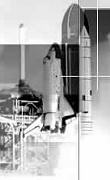 I was going to title this post “Exporter Temporarily Loses Export Privileges for Having Copy of the EAR in Its Offices.” However, after the uproar that a similar title (“BIS Fines Exporter for Filing Voluntary Disclosure“) created at BIS, I thought that a more anodyne title would be appropriate. The actual post title “Shake, Rattle and Roll” is a reference to the core business of Data Physics Corporation, a company which provides vibration testing equipment and which is in hot water with BIS for shipping that test equipment to the PRC.
I was going to title this post “Exporter Temporarily Loses Export Privileges for Having Copy of the EAR in Its Offices.” However, after the uproar that a similar title (“BIS Fines Exporter for Filing Voluntary Disclosure“) created at BIS, I thought that a more anodyne title would be appropriate. The actual post title “Shake, Rattle and Roll” is a reference to the core business of Data Physics Corporation, a company which provides vibration testing equipment and which is in hot water with BIS for shipping that test equipment to the PRC.
BIS released today on its website an order, dated November 17, which renewed a previous temporary order denying export privileges against Data Physics based on its export of test shakers (and related equipment) to two end-users in the PRC in violation of section 744.3 of the EAR. Section 744.3 prohibits unlicensed exports to companies that are engaged in missile proliferation and that are located in countries, such as China, which are listed in the D:4 Country group set forth in Supplement 1 to part 740 of the EAR. Data Physics objected to the renewal of the denial order and a hearing was held. As a result, we have considerably more information than usual in the Order about the facts that led to the renewal of the temporary denial order.
Two exports of test shakers and related equipment were at issue. The first was an export of a vector vibration controller in September 2005 to Shanghai Xinyue Instrument Factory in the PRC. Shanghai Xinyue Instrument Factory is not on the Entity List. BIS contended that the export violated section 744.3 of the EAR because Data Physics knew that Shanghai Xinyue was engaged in the development of missile technology. BIS relied on an email that Data Physics received in 2002 from a BIS Special Agent in Charge and that identified Shanghai Xinyue as involved in missile proliferation.
When Data Physics responded that the email was three years before the export, BIS responded with evidence that investigators executing a search warrant had found a copy of part 744 in Data Physics offices. (Hence, what almost became the title of this post). BIS also noted that a manager for Data Physics attend a training session of part 744 where he would have learned, among other things, to do an internet search on proposed end-users. This latter argument is significant because the first result of a Google search on “Shanghai Xinyue Instrument Factory” is a page that clearly identifies Shanghai Xinyue as involved in missile development.
Although exporters should always do such Internet searches on end-users, the standard of section 744.3 is that the exporter knew that the end user in China was involved in missile proliferation, not that it “should have known” of such involvement. Frankly, BIS’s evidence here appears flimsy. Fortunately for BIS, and not so fortunately for Data Physics, the evidence on the second export is on much firmer ground.
The second export involved the shipment of a test shaker to China Hai Yang Electro-Mechanical Academy (a.k.a. “3rd Academy”). Here BIS produced evidence of internal emails instructing employees to use a false end-user name — 27th Locomotive — in place of 3rd Academy. That, of course, isn’t just a smoking gun, it’s a smoking locomotive, clearly suggesting that Data Physics was well aware of the missile proliferation concerns posed by a shipment to 3rd Academy.
One other point not raised by BIS but which seems significant to me. Companies that have pictures of rockets taking-off on their home page should pay careful attention to section 744.3 and know exactly what their customers are doing with exported items.
 Permalink
Permalink
Copyright © 2006 Clif Burns. All Rights Reserved.
(No republication, syndication or use permitted without my consent.)

 Posted by
Posted by  Category:
Category: 

